Bass CDs
New Album: Bruno Råberg First Solo Bass Album, Look Inside
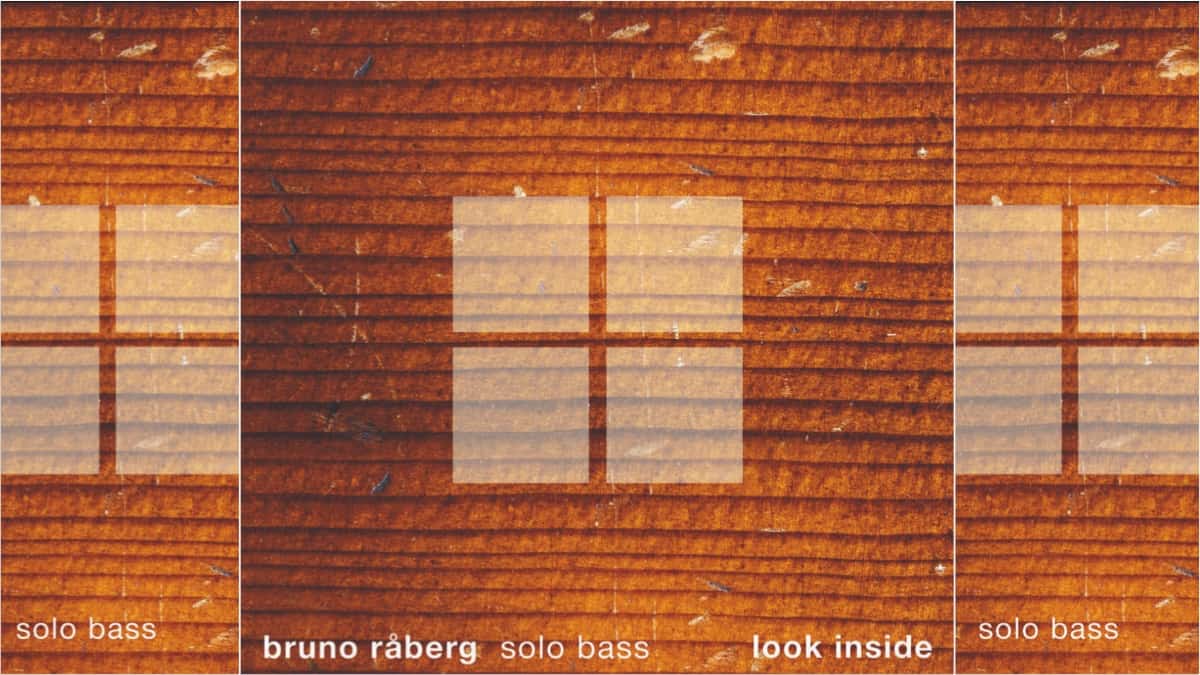
Bruno Råberg First Solo Bass Album, Look Inside…
Bassist Bruno Råberg melds a lifetime of inspiration and experience into his stunning debut solo bass album.
Look Inside, due out May 19, 2023 via Orbis Music, culls influences from throughout Bruno Råberg’s notable career, including jazz standards, free improvisation and world music influences.
Album release concert May 14, 2023 at Lilypad Cambridge, MA
The bassist’s role in a jazz group is often defined by their relationship to their fellow instrumentalists – as the backbone of the band, the bridge between frontline and rhythm section, the timekeeper, the anchor, the bedrock. Bruno Råberg has played those roles expertly over the course of a career lasting nearly 50 years, releasing a dozen albums as a leader and becoming an in-demand collaborator for a wide array of artists including Kris Davis, Donny McCaslin, George Garzone, Tiger Okoshi, Ben Monder, Matt Wilson, Mike Mainieri, Adam Cruz, Bob Moses, Sam Rivers, Kenny Werner, Terri Lyne Carrington, Jerry Bergonzi, and many others.
With Look Inside, Råberg goes it alone for the first time with his debut album for solo bass. The depth and diversity of the music he’s recorded reflect the wealth of experiences and studies he’s undertaken over the course of his journey, from investigations of jazz standards to explorations of Indian and African traditions, free improvisation to through-composed chamber music. Due out May 19, 2023, Look Inside is a new venture for the veteran bassist, but also stands as a capstone to an eclectic and adventurous career.
The title is an apt one for such an introspective effort, as Råberg writes in his liner notes. “As I was embarking on this project I asked myself a lot of questions. Who am I playing for? How will the listener perceive this? Will the listener hear what I hear? My approach ended up shaping the music by trying to imagine a dialogue with you, the imagined listener.”
While a solo bass project was a long-held aspiration, Råberg had rarely performed and never recorded wholly on his own, which meant finding a form that made sense for a full album. Experimenting in his home studio outside of Boston, where he is a professor at Berklee College of Music, Råberg at first found himself overcompensating for the lack of collaborators, overindulging in lengthy solos and crowding the empty space surrounding him. “I had to be very self-critical,” he explains. “I was playing too much. It was fun, but I felt that it wouldn’t make sense to the listener. I tried to distill things down more and more to their essence. Otherwise it could become one of those albums that only another bass player would listen to.”
Look Inside suffers from none of that, standing as a passionately musical experience that is rich, expressive, and eclectic enough to command one’s attention from beginning to end. Råberg “aimed to play in a way that would make a composition sound like it is an improvisation and an improvisation like it is a composition,” and the seams between the two are rarely detectable. That can be credited in part to the material that Råberg wrote and selected for the album as well as the challenges that he set for himself with each piece. But mostly it’s due to his own impeccable taste and his agile eloquence on the bass.
The album begins with Råberg navigating through “Island Pathways,” for which he created a series of brief motives that are bridged with improvisation. It’s a compelling piece of storytelling, with key points woven into a vibrant tapestry. Råberg’s knowledge of African music and ability to transform the sound of his instrument come to the fore on “Kansala,” in which he evokes the sound of the African kalimba. The Swedish-born bassist traveled to West Africa for the first time at the age of 22, later living for two years with an African percussionist in Stockholm. The piece melds two primary inspirations, leading directly into a rendition of Miles Davis’ classic “Nardis,” which Råberg first heard via Bill Evans’ Sunday at the Village Vanguard.
That album played a key role in shaping Råberg’s sonic imagination. Having grown up in the Swedish countryside, he moved to Stockholm at 20 after being discovered by the influential trombonist Eje Thelin. “It was a pretty tumultuous time,” Råberg recalls of the period, when he suddenly found himself touring Europe and playing the Monterey Jazz Festival. “I had a dingy apartment with no furniture, but I had a tape recorder and one tape. It had Sunday at the Village Vanguard on one side and the kora of music of Jali Nayama Suso from Gambia on the other.”
Both sides of that oft-played cassette proved instrumental for Råberg, who later met and played with Suso. The Gershwin favorite “My Man’s Gone Now” is the second tune on the Evans trio album, and the bassist set out to recreate his memory of discovering the piece with his rapturous version of the song. It, along with Duke Ellington and Billy Strayhorn’s “Prelude to a Kiss,” showcase the nimble lyricism of which Råberg is uniquely capable.
“Chennai Reminiscence” reflects on Råberg’s time studying in India, drawing on a descending line from a South Indian classical composition as its starting point, with the bassist’s bow summoning sinuous violin-like lines, percussive rhythms, and vivid harmonies. “A Minor Excursion” and “June Poem” are classically influenced pieces, mostly or wholly through-composed. “Gyrating Spheres,” conversely, is a free improvisation utilizing three different approaches to the bass. “A Space in Between” is an improvised variation on an improvised theme from a film created by the bassist’s daughter, Erika Råberg. “Ode to Spring” and “Stillness – Epilogue” are both mood pieces, the one bristling and joyous, the other meditative and searching.
Look Inside represents a lifetime of musical exploration and evolution, from Råberg’s beginnings in the Swedish countryside, to his deep-end education in Stockholm and across Europe, to his life in the States beginning in 1981. In the end, the album is a singularly personal statement. “I feel like it sounds like me,” Råberg concludes. “Like all musicians I’ve gone through the process of emulating and learning from other players. Now I just play and trust that whatever happens, that is my sound.”
Bruno Råberg – Look Inside
Orbis Music – OM 1222 – Recorded June 20-24, 2022
Release May 19, 2023
brunoraberg.com
brunoraberg.bandcamp.com
Bass CDs
Reissue: Geddy Lee’s My Favourite Headache and Alex Lifeson’s Victor
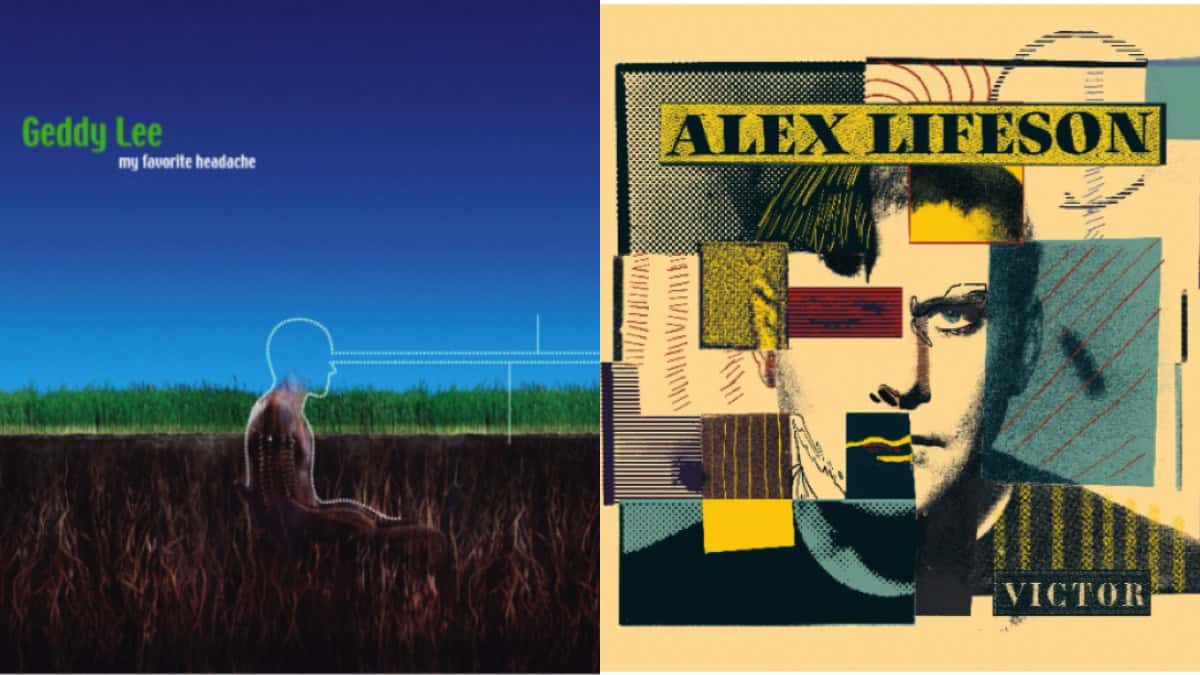
In an exciting announcement for Rush fans and rock enthusiasts alike, Anthem Records in Canada and Rhino Records will reissue the first-ever solo albums of Alex Lifeson and Geddy Lee. Lifeson’s 1996 album Victor and Lee’s 2000 offering My Favourite Headache will be re-released on August 9, 2024, in various formats, including a range of vinyl configurations.
My Favourite Headache, Geddy Lee’s only solo album to date, was initially released on November 14, 2000. This reissue marks its first vinyl pressing since a limited-edition Record Store Day exclusive in 2019. The fourth side of the album features two instrumental mixes. Produced by Lee, Ben Mink, and David Leonard, the album includes contributions from Mink and drummers Matt Cameron (Soundgarden/Pearl Jam) and Jeremy Taggart (Our Lady Peace).
Victor, originally released on January 9, 1996, marks Alex Lifeson’s solo debut. Lifeson took on the roles of songwriter, producer, and mixer for this album. For the first time, Victor will be available on vinyl, featuring a complete remix by Lifeson himself to enhance the audio quality. The fourth side of the album includes four instrumental tracks previously exclusive to Lifeson’s website. Guest artists include lead vocalist Edwin from I Mother Earth, Primus bassist Les Claypool, and Canadian powerhouse vocalist Lisa Dalbello. The 15-song collection is paired with striking 2024 reimagined artwork by Fantoons Animation Studios.
For more details on the Geddy Lee reissue and to preorder, https://lnk.to/MyFavouriteHeadache
For more details on the Alex Lifeson reissue and to preorder, https://lnk.to/AlexLifesonVictor
Bass CDs
New Album: Ben Wolfe, The Understated
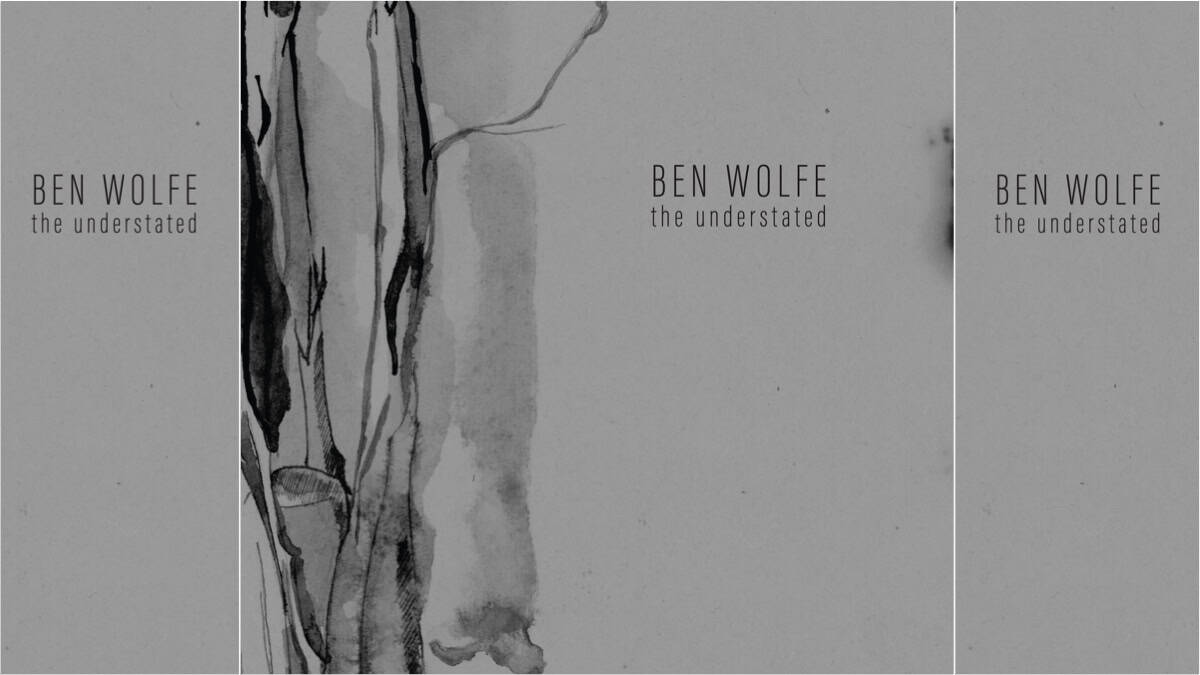
Acclaimed bassist and composer Ben Wolfe is thrilled to announce the August 9, 2024 release of The Understated.
This evocative new album features a collection of new original compositions by Wolfe paired, with re-imaginings of some of the composer’s classic material, with a particular emphasis on the ballad song-form. The album features ten tracks, five of which are ballads – a bold move for any composer – Wolfe creates a cohesive narrative here that challenges the listeners perception of the classic ballad. The Understated features Wolfe alongside artists who make up the very frontline of modern jazz, including pianist Orrin Evans, tenor saxophonist Nicole Glover, drummer Aaron Kimmel, guitarist Russell Malone and pianist Sullivan Fortner.
Wolfe has always been drawn to finding beauty in subtlety. He perceives a certain tranquility and elegance in the Coltrane Quartet, Louis Armstrong’s Hot Fives and Sevens, the legendary Miles Davis bands and rhythm sections, and the music of Charlie Parker. While he, of course, revels at the immense world-building energy of this music, it’s the “other side” – the elusive, magical aspect that endlessly captivates him – the understated. The composer draws inspiration most from the ensemble work of these hallmark jazz ensembles. Despite the individual parts being extraordinarily beautiful on their own, the musicians in these archetypal ensembles play only what is needed to serve the music, paying particular attention to the band-sound more-so than their individual sound. The Understated embodies this ethos with a tremendously impactful ensemble-oriented approach.
Wolfe sought to continue the thread started by “Lullaby in D” from his previous critically acclaimed release Unjust. Wolfe indicates, “Something about that take was so perfect to me. It had been brought to life, and it had that ensemble thing.” Wolfe assembled the quartet who recorded “Lullaby” (including longtime collaborator Orrin Evans, as well as recent frequent collaborators Aaron Kimmel and Nicole Glover) and two very special guests, Russell Malone and Sullivan Fortner. The recording process took place in one room with no headphones or isolation booths, further emphasizing the group’s collective awareness.
This record succeeds in bringing Wolfe’s expansive music to life through extremely conscientious group playing. Nothing is forced or pushed; everything that needs to be stated is stated. The single from the album, “Waltz,” encapsulates the spirit of the project. Wolfe says, “I view albums like a complete painting, so singles have been difficult for me. This song is very much in the spirit of the whole but doesn’t give away the record.” The piece features a sentimental melody delivered with grace by tenor saxophonist Nicole Glover, before Glover and Evans embark on stirring solos dancing in and out of the tune’s harmony.
Other new original compositions featured here include “Ballad in B”, which perhaps best demonstrates the group’s stunning cohesion. This tune is a refreshing diversion as it features a serene repeated melody without overt melodic improvisation. The following track, “Anagram”, begins with Kimmel’s rhythmic refrains and a unison melody played by Glover and Wolfe and is a true ensemble piece. On this track, Wolfe shines with a lyrical solo. The moody short interlude “So Indeed” is a lyrical masterwork that leaves the listener wanting even more. “Beautiful You” features master guitarist Russell Malone on the track’s melody. The emphasis here on restrained lyricism is a prime reminder of the old adage “it’s not the notes you play, it’s the notes you don’t play”. Each pocket of space in between melodic moments leaves room for the listener to breathe deeper and deeper into the song. The driving “Triangle Man” features fantastic improvisation from Glover and Kimmel. The tender “Barely Spoken” concludes the album with a feature for pianist Sullivan Fortner.
The album also weaves in references to Wolfe’s past works, creating a personal musical universe. “The Poet Speaks” is the opening track on his first record, 13 Sketches. “Occam’s Razor” was composed years ago for a collaboration with a choreographer and painter, and was a much different composition in its original form. “Love Is Near” was originally found on The Whisperer. With ballads in particular, Ben uses voicings and sounds that represent certain things to him, intentionally referencing his other compositions to generate connections between his songs.
Wolfe’s tremendous compositions on this album are also influenced by the group of musicians that he assembled for this release. Wolfe remarks “One of the things these five musicians share in common is that not only are they true ensemble players, they will always play something unexpected and special.” Listeners will find calm and beauty within the ensemble performances throughout The Understated.
Visit online at benwolfe.com/
Bass CDs
New Album: Orlando le Fleming, Wandering Talk
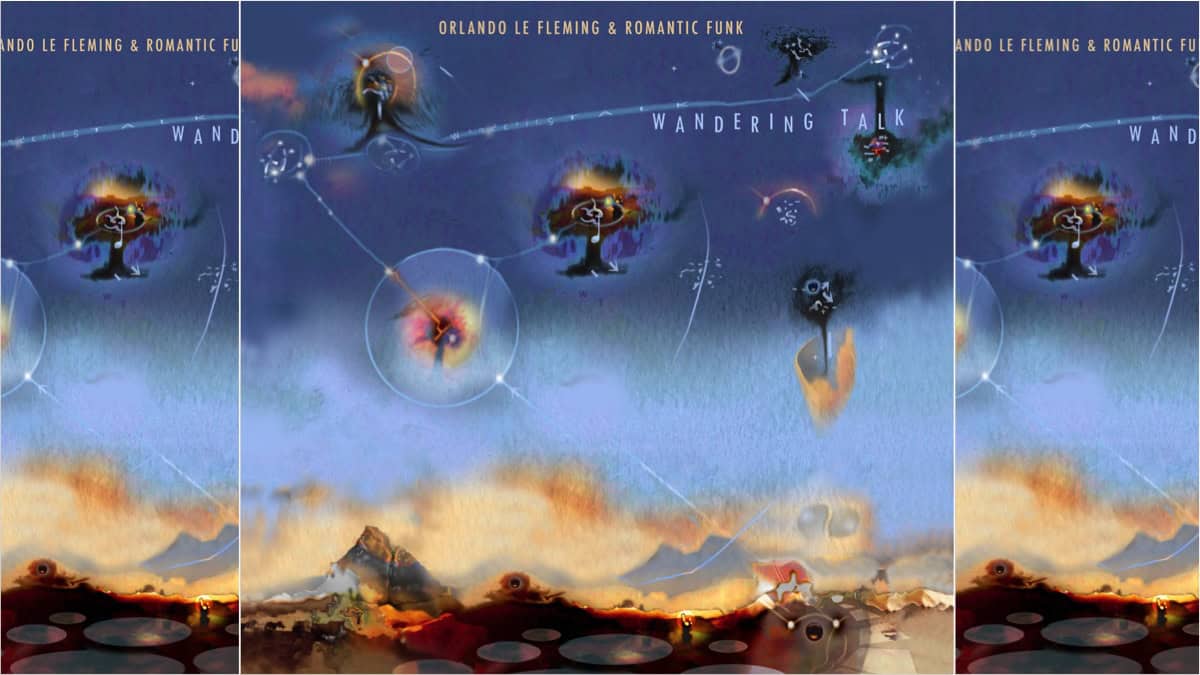
Bassist, band leader, and composer Orlando le Fleming continues to make music that crosses genres as readily as he crosses the Atlantic, with this new album ‘Wandering Talk’, to be released physically on 23rd August via the UK’s premiere jazz label, Whirlwind Recordings.
After 20 years in New York City, he’s back in his native UK, forging new pathways and renewing old partnerships. His love for the acoustic tradition continues unabated alongside his deep affection for the robust, muscular electric fusion that emerged in the 1980s, and he has received critical acclaim from media including The Guardian, Financial Times, Jazzwise, and All About Jazz among others. He has also toured and recorded with some of the world’s greatest jazz musicians including Branford Marsalis, Kurt Rosenwinkel, Antonio Sanchez, Ari Hoenig, and Wayne Krantz.
The Romantic Funk project was born in New York’s legendary 55 Bar to explore that legacy: now the new album ‘Wandering Talk’ builds on the critical acclaim generated by ‘The Unfamiliar’ (2020), building on the framework with a set of collaborators that brings together London and New York, past and present, acoustic, and electric, and merges it all into a spectacular whole.
Following the same principles that served the project in NYC, le Fleming booked four Friday nights at London’s renowned Vortex Club to workshop the music that would become the album, with a rotating cast of players which he honed down into the final line-up. Old London friends Tom Cawley (piano/keys) and James Maddren (drums) completed the rhythm section. New acquaintance Nathaniel Facey was picked from the ranks of the UK’s brightest young saxophone players. NYC stalwart Philip Dizack flew in from the US to play trumpet and reaching back to Orlando’s school days and forward to his own family, one-time classmate Chris Martin (Coldplay) and his own daughter Nadia combined to provide vocals on a special setting of Rumi’s poetry.
As before, the music combines fusion’s flash and fire with a contemporary sensibility. This time, Orlando’s questing spirit sends his superb band forward to investigate fresh areas of creativity in dynamic and texture.
Visit online at orlandolefleming.com
Bass CDs
Album: John Entwistle, Rarities Oxhumed – Volume Two
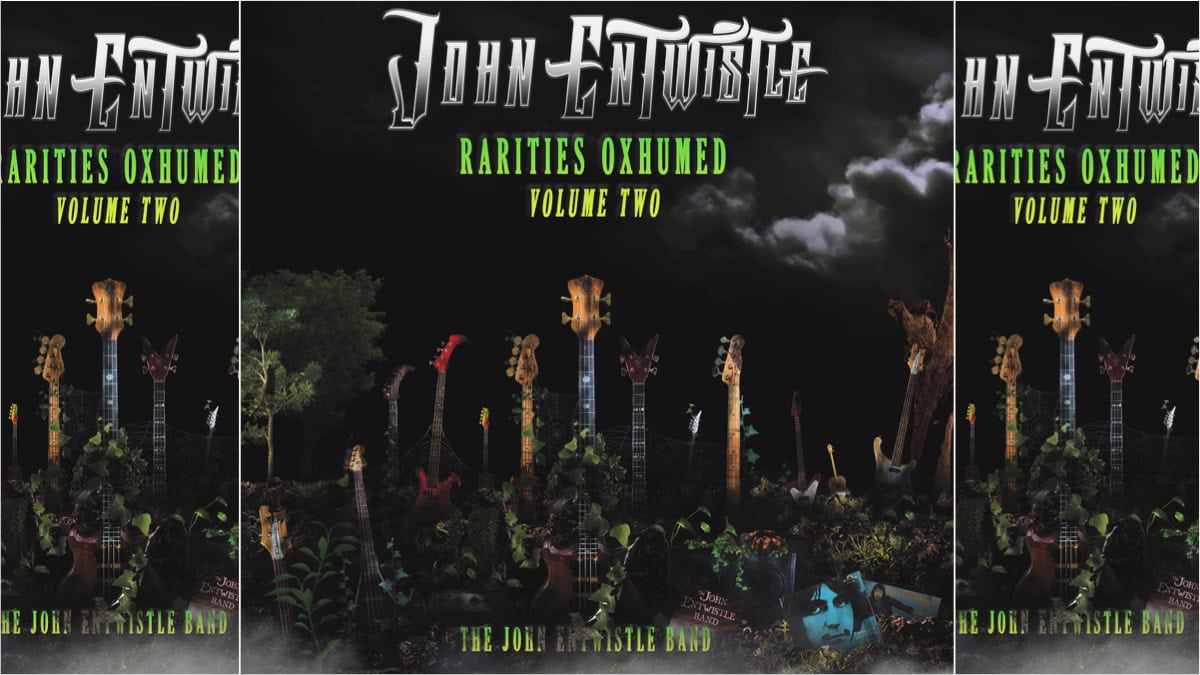
Album: John Entwistle, Rarities Oxhumed – Volume Two
Rarities Oxhumed – Volume Two is the second of the series of posthumous releases coming from John Entwistle.
Rarities Oxhumed – Volume Two is a compilation that was curated by drummer Steve Luongo, who served as John Entwistle’s producer, bandmate, business partner and good friend for many years. As Luongo states, “When I agreed to do two volumes of John Entwistle rarities, I knew volume two had to be even better than volume one. It is!” The collection of songs on Volume Two are from his years with the John Entwistle Band and include re-mastered versions of studio tracks including “Endless Vacation”, alternate mixes of tracks like “Sometimes”, and live tracks including The Who cuts “Real Me”, “Long Live Rock” and an epic version of “Young Man Blues”. The latest preview track to be released is the Who cut “Had Enough.”
Listen to “Had Enough” here: push.fm/ps/hadenough
Rarities Oxhumed – Volume One was quickly embraced by longtime fans as it featured gems like “Bogey Man” featuring Keith Moon, “Where You Going Now” (demo for the Who), and a raw live version of “Trick of the Light” recorded during the John Entwistle Band’s final tour in 2001. Deko Entertainment is thrilled to have been able to bring both volumes of this unearthed music of John Entwistle to the fans and forever solidify him as one of the greatest rock musicians ever.
For more information, visit online at dekoentertainment.com/john-entwistle
Bass CDs
Album Review: Mark Egan, Cross Currents
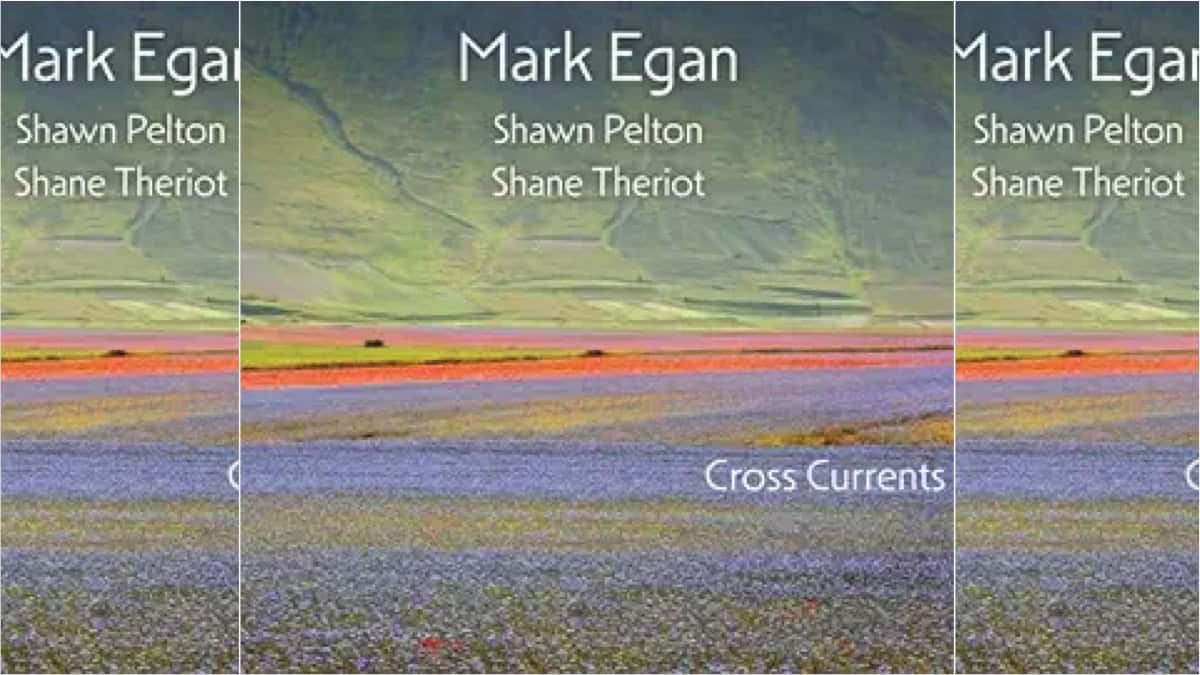
Mark Egan, Cross Currents…
It is exciting every time I get a new album from Mark Egan as he is such an amazingly versatile player and I never know what to expect (except for excellent artistry!) In his latest release, Mark has teamed up with Shawn Peyton on drums and Shane Theriot on guitar to bring us “Cross Currents”.
This collection of eleven tracks transports me to the Gulf Coast (New Orleans specifically). Mark’s fretless basses lay down a solid groove and lots of juicy solo work for this rootsy collection of funk, ambient, swamp-rock, second line, ballads, Cajun and even Indian Raga.
This trio is super-tight and the musicianship is flawless as each member has ample opportunity to shine. Even though each player is very talented in their own right, I feel that the collective energy is greater than just the sum of the players on this album. Each musician contributed to composing music for this project but the lion’s share are Mark’s original pieces.
I spent the summer of 1981 in New Orleans and this wonderful music takes me back to those fond memories. I participated in a wacky raft race on Lake Ponchatrain and this opening track elicits images of fun, sunshine, music, and great food.
This is another superb album that everyone will enjoy. Get your copy today! Cross Currents is available online at Amazon.com. Visit Mark online at markegan.com.





















